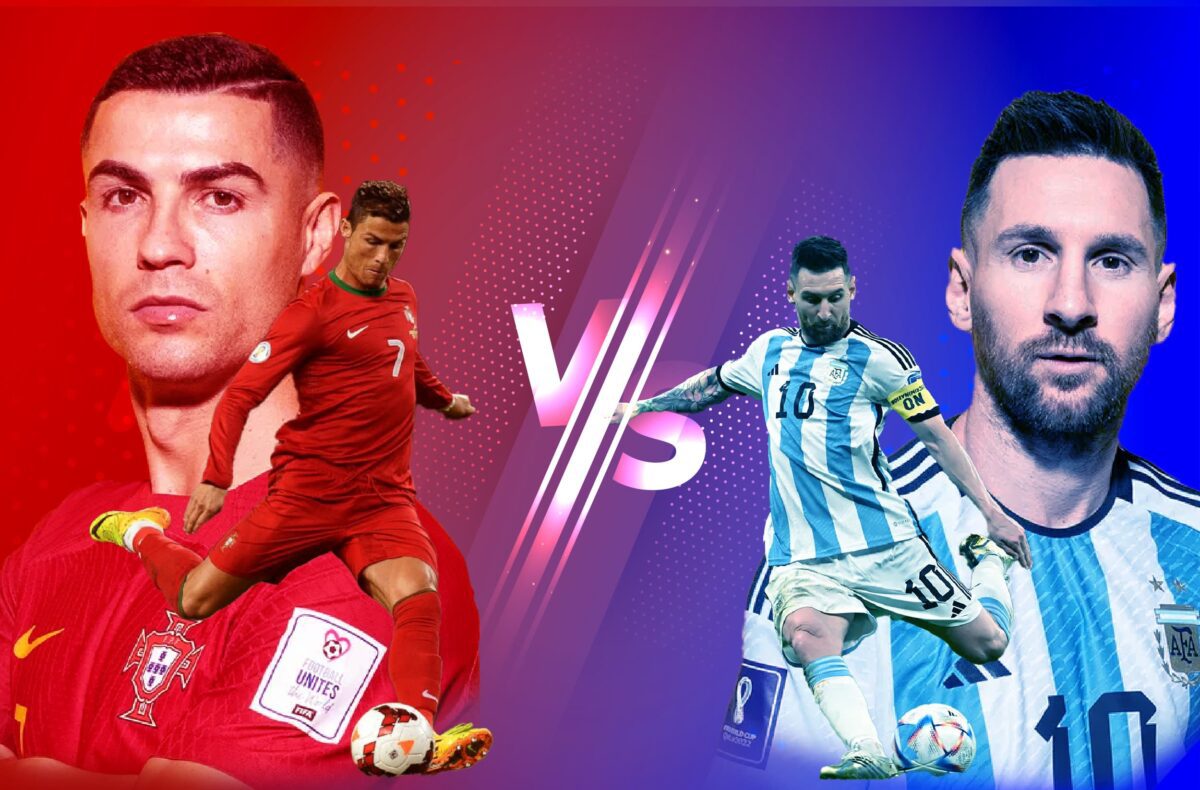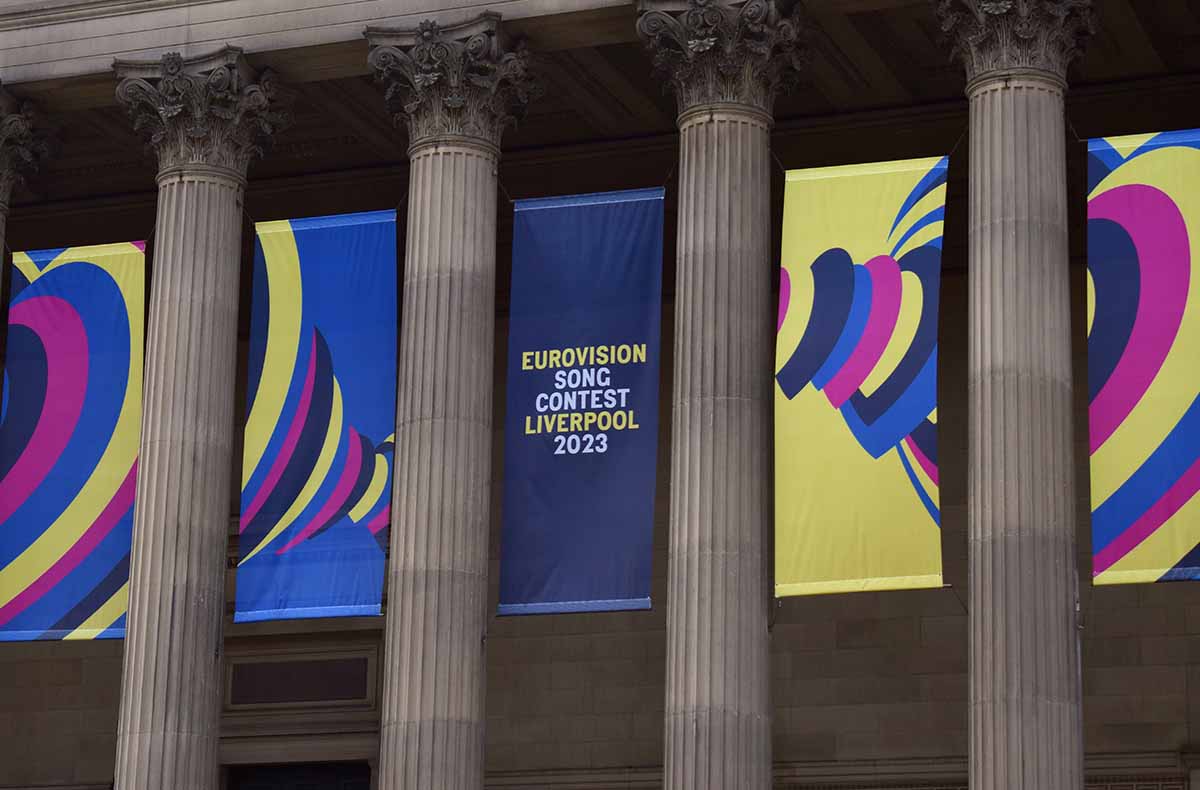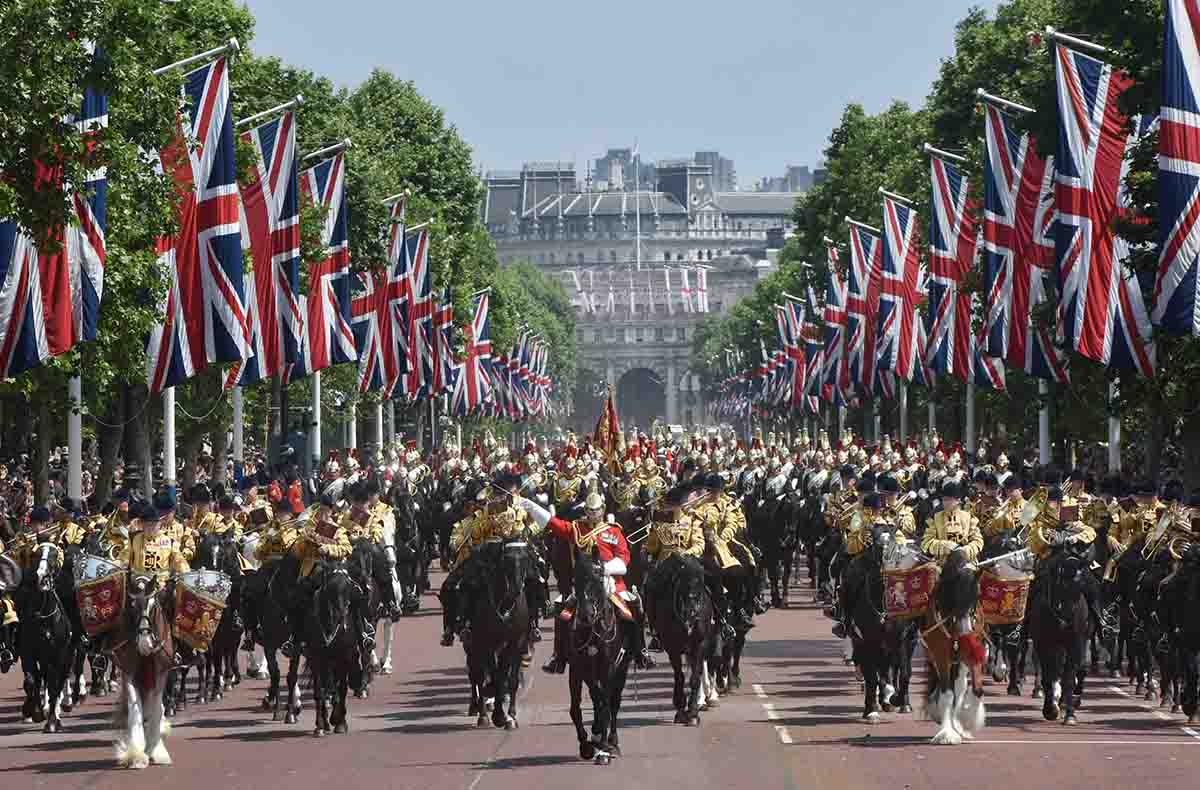
The first thing you notice about goats is the smell. That’s appropriate because the use of the acronym, when applied to sports, stinks of bullshit.
As Lionel Messi and Cristiano Ronaldo look back on what will probably be their last World Cup, the term GOAT (greatest of all time) is being bandied about in football circles. It’s not good enough to be in the pantheon of the game’s most talented and effective players—which both men undoubtedly are—they have to be the best in history. Hype has the shortest of memories.
Messi is a genius. His long battle to edge out Ronaldo as the dominant footballer of the 21st century has been entertaining. The advocates of both players can produce mountains of data to support the theory that their favorite is superior. The problem with stats, though, is that football is not math; it’s poetry.
Of course, the best poetry is given its structure by meter, so there is a mathematical element to it, but nuance and interpretation are much more important. This is the same with football. Assessing a career on the evidence of statistics tells just part of the story.
There has never been a better time to be a hugely-talented player. In the past, skill could be neutralized with physicality. Now, more protection is offered by referees.
The pitches favor stylists over sloggers. Games are no longer played on mudheaps, were passing and running with the ball became an almost impossible chore.
The biggest factor that has benefitted Messi and Ronaldo has been one of the worst things that have happened to the game: the advent of the age of the superclub.
In the past, relative financial parity meant talent was spread more evenly across leagues. In the modern era, an elite group of teams is like black holes, sucking in the best players—and the trophies with them.
Since Messi made his debut for Barcelona in 2004, the Catalan side and Real Madrid— where Ronaldo had his most successful and longest spell—have won 14 of 16 Spanish titles. Atletico Madrid managed twice to disrupt the monopoly.
The superclubs—Barca, Real, Bayern Munich, Paris Saint-Germain, Manchester City, and Juventus—have dominated their respective divisions for the past decade. A clutch of other teams who have either underachieved (Manchester United) or are a notch down in financial firepower (the clubs that signed up for the failed European Super League last year) provide the most competition. The rest? Fodder for the superclubs. Messi and Ronaldo have feasted with stat-padding glee on the game’s underclass.
So who can compare with these modern-day marvels? The obvious pair are Pele and Diego Maradona.
Pele burst onto the World Cup scene in 1958 as a 17-year-old, scoring twice in the final against Sweden. He was part of a Brazil squad that were global champions three times in four attempts—he was injured early in the 1962 tournament. His greatest moments came in 1970 in Mexico, but Pele transcended the sport.
The Brazilian’s peak years came during the civil rights campaign in the United States and the emergence of Black culture into the mainstream. Pele was a Black icon, and his team, Santos, milked his celebrity by touring the world and playing lucrative friendly matches. His impact was massive, particularly in Africa. Later, he continued his soccer missionary work by spending two years at the New York Cosmos.
Diego Maradona also has a compelling case to be regarded as the greatest. Remove Maradona from the 1986 Argentina squad and replace him with any other player in history, and it is questionable whether the team would go on to win the World Cup.
His finest feat, though, was to win Serie A in Italy twice with Napoli, who had never won the title before and have not since. This was during a period where Italian football attracted the best players from across the planet, and talent was distributed across a number of teams. Six different clubs won the Scudetto during Maradona’s spell at Napoli, including the Milan team, which is considered by many to be the greatest club side in history.
Maradona also had to endure seriously rough treatment. Like Messi, Maradona played for Barcelona, but the younger man never had to face anyone like Andoni Goikoetxea— the “Butcher of Bilbao” smashed the Argentinian’s ankle. Defenders like Goikoetxea would have made Messi and Ronaldo’s life much more difficult.
Statistics become even more problematic when attempting to assess the greatness of players in different positions. Franz Beckenbauer is prominent in football’s hall of fame, but the Bayern Munich and West Germany hero was a defender and midfielder. He was at the forefront of the Total Football revolution of the 1960s and 70s, as was Johan Cruyff, whose Netherlands and Ajax sides were thrilling to watch.
Television allows fans to see almost every kick in the career of Messi and Ronaldo. There is much less footage of their predecessors. There is barely any film of Alfredo Di Stefano and Ferenc Puskas, but they need to be considered even if they both suffer from an early version of the superclub syndrome. They were part of the Real Madrid team that won the first five European Cups (the forerunner of the Champions League).
More recently, Zinedine Zidane’s exploits placed him in conversations about the very best in the sport. The Frenchman’s reputation has waned slightly the further we move from his retirement. Recency bias plays a huge part in any discourse about the “best ever.”
We will only be able to assess the status of Messi and Ronaldo after they have finished playing. For now, though, my personal view is that the game’s finest are in this order:
1) Maradona—a genius who carried the Napoli side, despite being fueled by cocaine and alcohol. (These were not performance-enhancing substances.)
2) Pele—the outstanding player from the most flamboyant football nation.
3) Beckenbauer—a revolutionary performer who is overlooked because he wasn’t a striker.
4) Cruyff—the poster boy for Total Football
5) Messi—a wonderful player
Ronaldo sits just outside this group with Di Stefano and Puskas. That is not an insult—it is the highest of praise. Only the truly incredible get mentioned in this company. Anyone who says differently is acting the goat.



